- Home
- Linda Lael Miller
Part of the Bargain Page 10
Part of the Bargain Read online
Page 10
“I’m Jess,” he warned again in a husky whisper that betrayed his own fierce need.
Libby drew him to her with quick, fevered hands. “I know,” she gasped, and then she repeated his name like some crazy litany, whispering it first, sobbing it when he thrust his searing magnificence inside her.
He moved slowly at first, and the finely sculptured planes of his face showed the cost of his restraint, the conflicting force of his need. “Libby,” he pleaded. “Oh, God… Libby…”
She thrust her hips upward in an instinctive, unplanned motion that shattered Jess’s containment and caused his great muscular body to convulse once and then assert its dominance in a way that was at once fierce and tender. It seemed that he sought some treasure within her, so deeply did he delve, some shimmering thing that he would perish without.
His groans rose above the sound of thunder, and as his pace accelerated and his passion was unleashed, Libby moved in rhythm with him, one with him, his.
Their bodies moved faster, agile in their quest, each glistening with the sheen of sweet exertion, each straining toward the sun that, this time, would consume them both.
The tumult flung them high, tore them asunder, fused them together again. Libby sobbed in the hot glory of her release and heard an answering cry from Jess.
They clung together, struggling for breath, for a long time after the slow, treacherous descent had been made. Twice, on the way, Libby’s body had paused to greedily claim what had been denied it before.
She was flushed, reckless in her triumph. “I did it,” she exalted, her hands moving on the slackened muscles in Jess’s back. “I did it… I responded…”
Instantly she felt those muscles go taut, and Jess’s head shot up from its resting place in the curve where her neck and shoulder met.
“What?”
Libby stiffened, knowing now, too late, how grave her mistake had been. “I mean, we did it…” she stumbled lamely.
But Jess was wrenching himself away from her, searching for his clothes, pulling them on. “Congratulations!” he yelled.
Libby sat up, confused, wildly afraid. Dear God, was he going to walk out now? Was he going to hate her for a few thoughtless words?
“Jess, wait!” she pleaded, clutching the sheet to her chest. “Please!”
“For what, Libby?” he snapped from the top of the stairs. “Exhibit B? Is there something else you want to prove?”
“Jess!”
But he was storming down the stairs, silent in his rage, bent on escaping her.
“Jess!” Libby cried out again in fear, tears pouring down her face, her hands aching where they grasped the covers.
The only answer was the slamming of the front door.
Chapter 7
Ken Kincaid looked up from the cards in his hand as the lights flickered, went out, came on again. Damn, this was a hell of a storm—if the rain didn’t let up soon, the creeks would overflow and they’d have range calves drowning right and left.
Across the table, Cleave Barlowe laid down his own hand of cards. “Quite a storm, eh?” he asked companionably. “Jess bring your truck back yet?”
“I don’t need it,” said Ken, still feeling uneasy.
Lightning creased the sky beyond the kitchen window, and thunder shook the old house on its sturdy foundations. Cleave grinned. “He’s with Libby, then?”
“Yup,” said Ken, smiling himself.
“Think they know the sky’s turning itself inside out?”
There was an easing in Ken; he laughed outright. “Doubt it,” he replied, looking at his cards again.
For a while the two men played the two-handed poker they had enjoyed for years, but it did seem that luck wasn’t running with either one of them. Finally they gave up the effort and Cleave went home.
With his old friend gone, Ken felt apprehensive again. He went around the house making sure all the windows were closed against the rain, and wondered why one storm should bother him that way, when he’d seen a thousand and never found them anything more than a nuisance.
He was about to shut off the lamp in the front room when he saw the headlights of his own truck swing into the driveway. Seconds later, there was an anxious knock at the door.
“Jess?” Ken marveled, staring at the haggard, rain-drenched man standing on the front porch. “What the hell…?”
Jess looked as though he’d just taken a first-rate gut punch. “Could I come in?”
“That’s a stupid question,” retorted Ken, stepping back to admit his unexpected and obviously distraught visitor. “Is Libby okay?”
Jess’s haunted eyes wouldn’t quite link up with Ken’s. “She’s fine,” he said, his hands wedged into the pockets of his jeans, his hair and sweater dripping rainwater.
Ken arched an eyebrow. “What’d you do, anyway—ride on the running board of that truck and steer from outside?”
Jess didn’t answer; he didn’t seem to realize that he was wet to the skin. There was a distracted look about him that made Ken ache inside.
In silence Ken led the way into the kitchen, poured a dose of straight whiskey into a mug, added strong coffee.
“You look like you’ve been dragged backward through a knothole,” he observed when Jess was settled at the table. “What happened?”
Jess closed his hands around the mug. “I’m in love with your daughter,” he said after a long time.
Ken sat down, allowed himself a cautious grin. “If you drove over here in this rain just to tell me that, friend, you got wet for nothing.”
“You knew?” Jess seemed honestly surprised.
“Everybody knew. Except maybe you and Libby.”
Jess downed the coffee and the potent whiskey almost in a single gulp. There was a struggle going on in his face, as though he might be fighting hard to hold himself together.
Ken rose to put more coffee into Jess’s mug, along with a lot more whiskey. If ever a man needed a drink, this one did.
“Maybe you’d better put on some dry clothes,” the older man ventured.
Jess only shook his head.
Ken sat back in his chair and waited. When Jess was ready to talk, he would. There was, Ken had learned, no sense in pushing before that point was reached.
“Libby’s beautiful, you know,” Jess remarked presently, as he started on his third drink.
Ken smiled. “Yeah. I’ve noticed.”
Simple and ordinary though they were, the words triggered some kind of emotional reaction in Jess, broke down the barriers he had been maintaining so carefully. His face crumbled, he lowered his head to his arms, and he cried. The sobs were deep and dry and ragged.
Hurting because Jess hurt, Ken waited.
Soon enough, his patience was rewarded. Jess began to talk, brokenly at first, and then with stone-cold reason.
Ken didn’t react openly to anything he said; much of what Jess told him about Libby’s marriage to Aaron Strand came as no real surprise. He was wounded, all the same, for his daughter and for the devastated young man sitting across the table from him.
The level of whiskey in Ken’s bottle went down as the hour grew later. Finally, when Jess was so drunk that his words started getting all tangled up with each other, Ken half led, half carried him up the stairs to Libby’s room.
In the hallway, he paused, reflecting. Life was a hell of a thing, he decided. Here was Jess, sleeping fitfully in Libby’s bed, all alone. And just up the hill, chances were, Libby was tossing and turning in Jess’s bed, just as lonely.
Not for the first time, Ken Kincaid felt a profound desire to get them both by the hair and knock their heads together.
Libby cried until far into the night and then, exhausted, she slept. When she awakened, shocked to find herself in Jess Barlowe’s bed, she saw that the world beyond the windows had been washed to a clean sparkle.
The world inside her seemed tawdry by comparison.
Her face feeling achy and swollen, Libby got out of bed, stumbled across th
e room to the bathroom. Jess was nowhere in the house; she would have sensed it if he were.
As Libby filled the tub with hot water, she wondered whether she was relieved that he wasn’t close by, or disappointed. A little of both, she concluded as she slid into her bath and sat there in miserable reverie.
Facing Jess now would have been quite beyond her. Why, why had she said such a foolish thing, when she might have known how Jess would react? On the other hand, why had he made such a big deal out of a relatively innocuous remark?
More confused than ever, Libby finished her bath and climbed out to dry herself with a towel. In short order she was dressed and her hair was combed. Because she had no tooth-brush— Jess had forgotten that when he picked up her things—she had to be content with rinsing her mouth.
Downstairs, Libby stood staring at the telephone, willing herself to call her father and confess that she needed a ride home. Pride wouldn’t allow that, however, and she had made up her mind to walk the distance when she heard a familiar engine outside, the slam of a truck door.
Jess was back, she thought wildly. Where had he been all night? With Monica? What would she say to him?
The questions were pointless, for when Libby forced herself to go to the front door and open it, she saw her father striding up the walk, not Jess.
Fresh embarrassment stained Libby’s cheeks, though there was no condemnation in Ken’s weathered face, no anger in his understanding eyes. “Ride home?” he said.
Unable to speak, Libby only nodded.
“Pretty bad night?” he ventured in his concise way when they were both settled in the truck and driving away.
“Dismal,” replied Libby, fixing her eyes on the red Hereford cattle grazing in the green, rain-washed distance.
“Jess isn’t in very good shape, either,” commented Ken after an interval.
Libby’s eyes were instantly trained on her father’s profile. “You’ve seen him?”
“Seen him?” Ken laughed gruffly. “I poured him into bed at three this morning.”
“He was drunk?” Libby was amazed.
“He had a nip or two.”
“How is he now?”
Ken glanced at her, turned his eyes back to the rutted, winding country road ahead. “Jess is hurting,” he said, and there was a finality in his tone that kept Libby from asking so much as one more question.
Jess is hurting. What the devil did that mean? Was he hung over? Had the night been as miserable for him as it had been for her?
Presently the truck came to a stop in front of the big Victorian house that had been “home” to Libby for as long as she could remember. Ken made no move to shut off the engine, and she got out without saying goodbye. For all her brave words of the night before, about not needing her father’s approval, she felt estranged from him now, subdued.
After forcing down a glass of orange juice and a slice of toast in the kitchen, Libby went into the studio Cathy and her father had improvised for her and did her best to work. Even during the worst days in New York, she had been able to find solace in the mechanics of drawing her cartoon strip, forgetting her own troubles to create comical dilemmas for Liberated Lizzie.
Today was different.
The panels Libby sketched were awkward, requiring too many erasures, and even if she had been able to get the drawings right, she couldn’t have come up with a funny thought for the life of her.
At midmorning, Libby decided that her career was over and paced from one end of the studio to the other, haunted by thoughts of the night before.
Jess had made it clear, in his kitchen, that he didn’t want to make love just to let Libby prove that she was “normal.” And what had she done? She’d gloated.
Shame ached in Libby’s cheeks as she walked. I did it, she’d crowed, as though she were Edison and the first electric light had just been lit. God, how could she have been so stupid? So insensitive?
“You did have a little help, you know,” she scolded herself out loud. And then she covered her face with both hands and cried. It had been partly Jess’s fault, that scene—he had definitely overreacted, and on top of that, he had been unreasonable. He had stormed out without giving Libby a chance to make things right.
Still, it was all too easy to imagine how he’d felt. Used. And the truth was that, without intending to, Libby had used him.
Small, strong hands were suddenly pulling Libby’s hands away from her face. Through the blur, she saw Cathy watching her, puzzled and sad.
“What’s wrong?” her cousin asked. “Please, Libby, tell me what’s wrong.”
“Everything!” wailed Libby, who was beyond trying to maintain her dignity now.
Gently Cathy drew her close, hugged her. For a moment they were two motherless little girls again, clinging to each other because there were some pains that even Ken, with his gruff, unswerving devotion, couldn’t ease.
The embrace was comforting, and after a minute or two Libby recovered enough to step back and offer Cathy a shaky smile. “I’ve missed you so much, Cathy,” she said.
“Don’t get sloppy,” teased Cathy, using her face to give the toneless words expression.
Libby laughed. “What are you doing today, besides being one of the idle rich?”
Cathy tilted her head to one side. “Did you really stay with Jess last night?” she asked with swift hands.
“Aren’t we blunt today?” Libby shot back, both speaking and signing. “I suppose the whole ranch is talking about it!”
Cathy nodded.
“Damn!”
“Then it’s true!” exalted Cathy aloud, her eyes sparkling.
Some of Libby’s earlier remorse drained away, pushed aside by feelings of anger and betrayal. “Has Jess been bragging?” she demanded, her hands on her hips, her indignation warm and thick in her throat.
“He isn’t the type to do that,” Cathy answered in slow, carefully formed words, “and you know it.”
Libby wasn’t so certain— Jess had been very angry, and his pride had been stung. Besides, the only other person who had known was Ken, and he was notoriously tight-lipped when it came to other people’s business. “Who told you?” she persisted, narrowing her eyes.
“Nobody had to,” Cathy answered aloud. “I was down at the stables, saddling Banjo, and one of the range crews was there—ten or twelve men, I guess. Anyway, there was a fight out front— Jess punched out one of the cowboys.”
Libby could only gape.
Cathy gave the story a stirring finale. “I think Jess would have killed that guy if Ken hadn’t hauled him off.”
Libby found her voice. “Was Jess hurt? Cathy, did you see if he was hurt?”
Cathy grinned at her cousin’s undisguised concern. “Not a scratch. He got into an argument with Ken and left.”
Libby felt a strong need to find her father and ask him exactly what had happened, but she knew that the effort would be wasted. Even if she could find Ken, which was unlikely considering the size of the ranch and all the places he could be, he wouldn’t explain.
Cathy was studying the messy piece of drawing paper affixed to the art board. “You’re not going to work?” she signed.
“I gave up,” Libby confessed. “I couldn’t keep my mind on it.”
“After a night with Jess Barlowe, who could?”
Libby suddenly felt challenged, defensive. She even thought that, perhaps, there was more to the deep closeness between Jess and Cathy than she had guessed. “What do you know about spending the night with Jess?” she snapped before she could stop herself.
Cathy rolled her beautiful green eyes. “Nothing. For better or worse, and mostly it’s been better, I’m married to Jess’s brother—remember?”
Libby swallowed, feeling foolish. “Where is Stacey, anyway?” she asked, more to make conversation than because she wanted to know.
The question brought a shadow of sadness to Cathy’s face. “He’s away on one of his business trips.”
Libby sat do
wn on her art stool, folded her hands. “Maybe you should have gone with him, Cathy. You used to do that a lot, didn’t you? Maybe if you two could be alone…talk…”
The air suddenly crackled with Cathy’s anger and hurt. “He talks!” she raged aloud. “I just move my hands!”
Libby spoke softly, gently. “You could talk to Stacey, Cathy—really talk, the way you do with me.”
“No.”
“Why not?”
“I know I sound like a record playing on the wrong speed, that’s why!”
“Even if that were so, would it matter?” signed Libby, frowning. “Stacey knew you were deaf before he married you, for heaven’s sake.”
Cathy’s head went down. “He must have felt sorry for me or something.”
Instantly Libby was off her stool, gripping Cathy’s shoulders in firm, angry hands. “He loves you!”
Tears misted the emerald-green eyes and Cathy’s lower lip trembled. “No doubt that’s why he intends to divorce me and marry you, Libby.”
“No,” insisted Libby, giving her cousin a slight shake. “No, that isn’t true. I think Stacey is confused, Cathy. Upset. Maybe it’s this thing about your not wanting to have a baby. Or maybe he feels that you don’t need him, you’re so independent.”
“Independent? Don’t look now, Libby Kincaid, but you’re the independent one! You have a career…you can hear—”
“Will you stop feeling sorry for yourself, dammit!” Libby almost screamed. “I’m so tired of hearing how you suffer! For God’s sake, stop whining and fight for the man you love!”
Cathy broke free of Libby’s grasp, furious, tears pouring down her face. “It’s too late!” she cried. “You’re here now, and it’s too late!”
Libby sighed, stepped back, stricken by her own outburst and by Cathy’s, too. “You’re forgetting one thing,” she reasoned quietly. “I’m not in love with Stacey. And it would take two of us to start anything, wouldn’t it?”
Cathy went to the windows and stared out at the pond, her chin high. Knowing that her cousin needed this interval to restore her dignity and assemble her thoughts, Libby did not approach her.

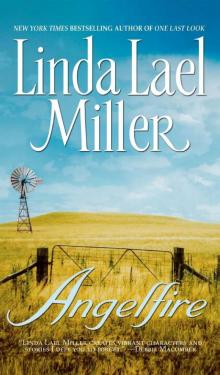 Angelfire
Angelfire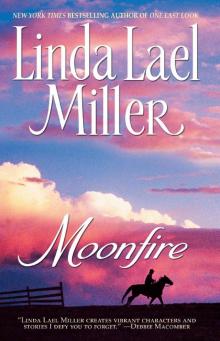 Moonfire
Moonfire The Yankee Widow
The Yankee Widow The Cowboy Way
The Cowboy Way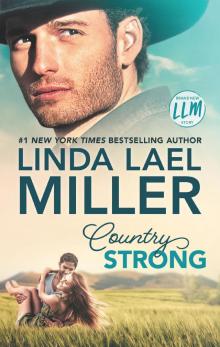 Country Strong--A Novel
Country Strong--A Novel Forever and a Day
Forever and a Day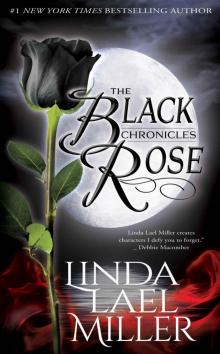 The Black Rose Chronicles
The Black Rose Chronicles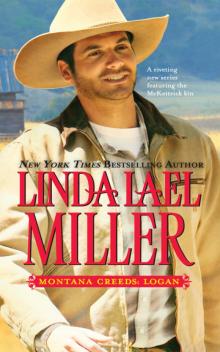 Montana Creeds: Logan
Montana Creeds: Logan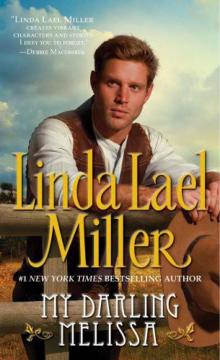 My Darling Melissa
My Darling Melissa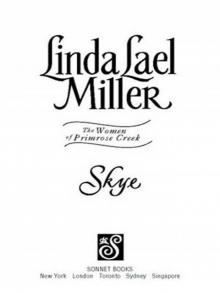 Skye
Skye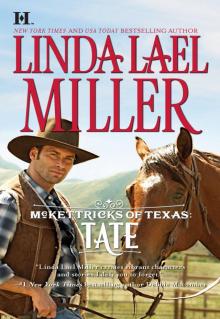 McKettricks of Texas: Tate
McKettricks of Texas: Tate Springwater Seasons
Springwater Seasons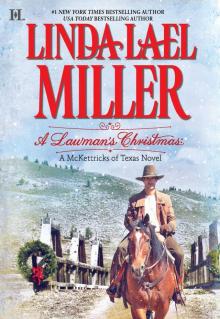 A Lawman's Christmas
A Lawman's Christmas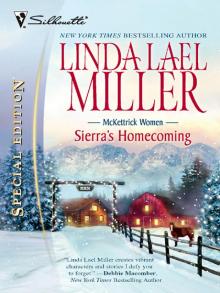 Sierra's Homecoming
Sierra's Homecoming![Parable, Montana [4] Big Sky Summer Read online](http://i1.bookreadfree.com/i/03/22/parable_montana_4_big_sky_summer_preview.jpg) Parable, Montana [4] Big Sky Summer
Parable, Montana [4] Big Sky Summer One Last Weekend
One Last Weekend A Stone Creek Collection, Volume 2
A Stone Creek Collection, Volume 2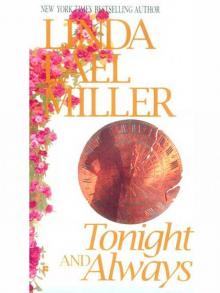 Tonight and Always
Tonight and Always Fletcher's Woman
Fletcher's Woman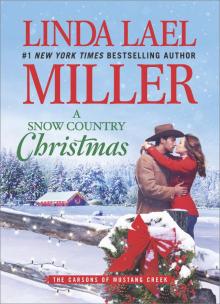 A Snow Country Christmas
A Snow Country Christmas The Last Chance Cafe
The Last Chance Cafe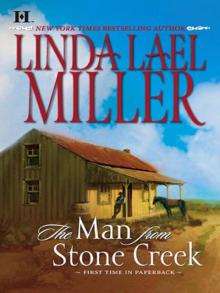 The Man from Stone Creek
The Man from Stone Creek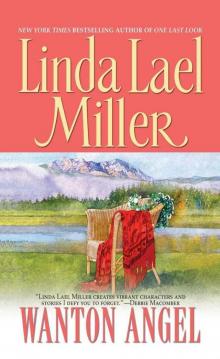 Wanton Angel
Wanton Angel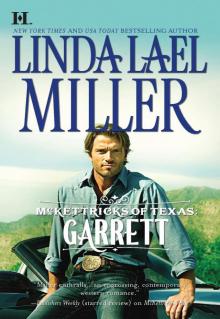 McKettricks of Texas: Garrett
McKettricks of Texas: Garrett Memory's Embrace
Memory's Embrace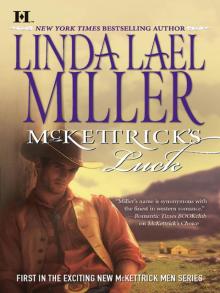 McKettrick's Luck
McKettrick's Luck Pirates
Pirates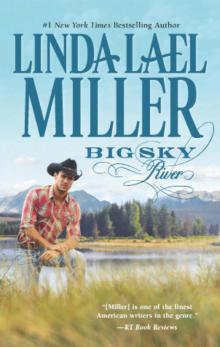 Big Sky River
Big Sky River Willow: A Novel (No Series)
Willow: A Novel (No Series)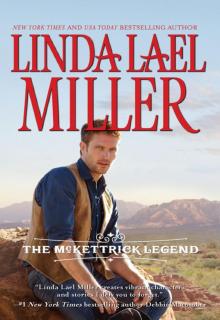 The McKettrick Legend: Sierra's HomecomingThe McKettrick Way (Hqn)
The McKettrick Legend: Sierra's HomecomingThe McKettrick Way (Hqn) Glory, Glory: Snowbound with the Bodyguard
Glory, Glory: Snowbound with the Bodyguard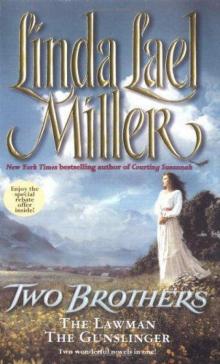 Two Brothers
Two Brothers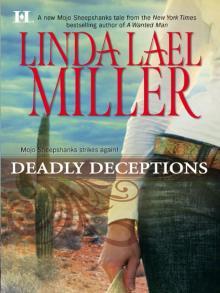 Deadly Deceptions
Deadly Deceptions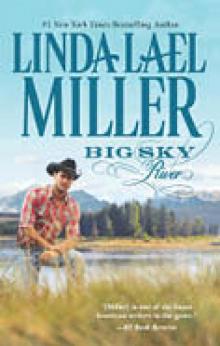 Big Sky Secrets
Big Sky Secrets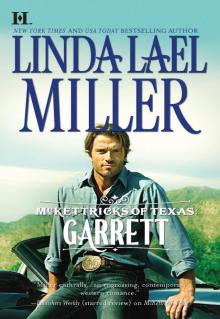 Garrett
Garrett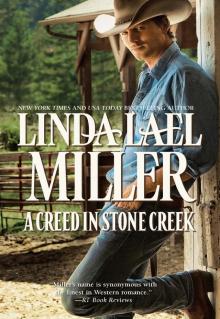 A Creed in Stone Creek
A Creed in Stone Creek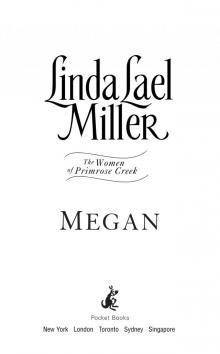 Megan
Megan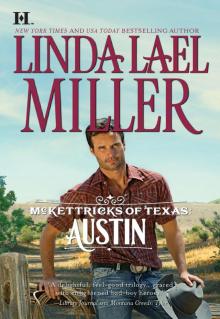 McKettricks of Texas: Austin
McKettricks of Texas: Austin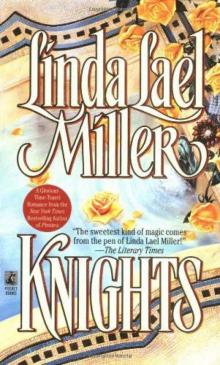 Knights
Knights High Country Bride
High Country Bride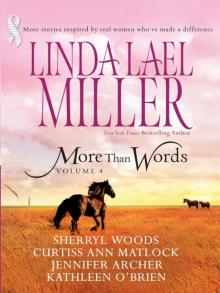 More Than Words Volume 4
More Than Words Volume 4 Glory, Glory
Glory, Glory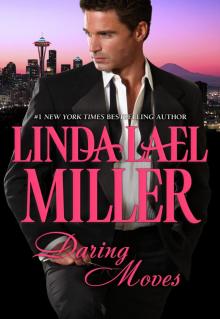 Daring Moves
Daring Moves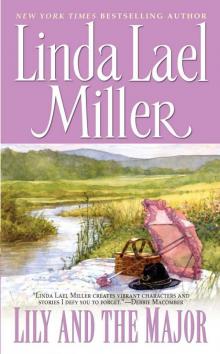 Lily and the Major
Lily and the Major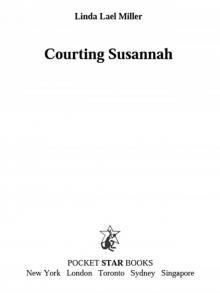 Courting Susannah
Courting Susannah Banner O'Brien
Banner O'Brien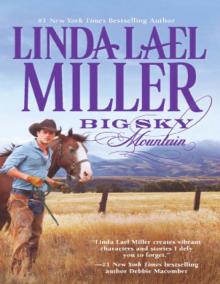 Big Sky Mountain
Big Sky Mountain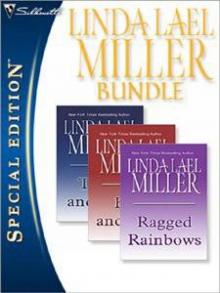 Linda Lael Miller Bundle
Linda Lael Miller Bundle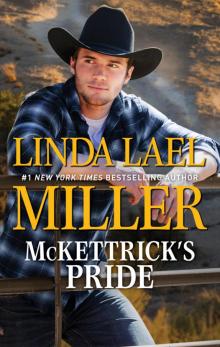 McKettrick's Pride
McKettrick's Pride A Stone Creek Collection Volume 1
A Stone Creek Collection Volume 1 A Wanted Man
A Wanted Man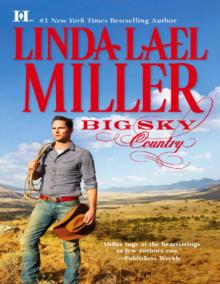 Big Sky Country
Big Sky Country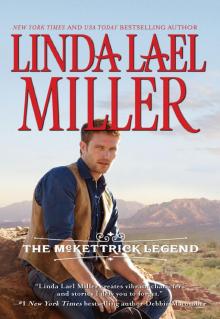 The McKettrick Legend
The McKettrick Legend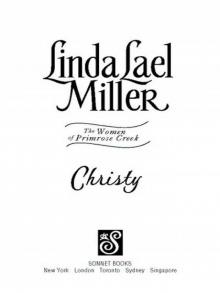 Christy
Christy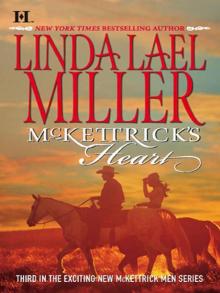 McKettrick's Heart
McKettrick's Heart Resurrection
Resurrection Arizona Heat
Arizona Heat Secondhand Bride
Secondhand Bride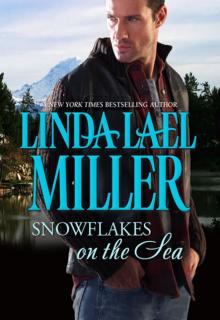 Snowflakes on the Sea
Snowflakes on the Sea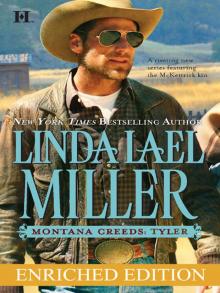 Montana Creeds: Tyler
Montana Creeds: Tyler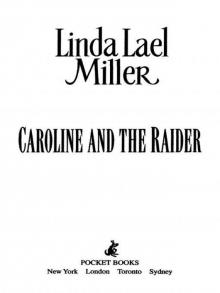 CAROLINE AND THE RAIDER
CAROLINE AND THE RAIDER A Proposal for Christmas: State SecretsThe Five Days of Christmas
A Proposal for Christmas: State SecretsThe Five Days of Christmas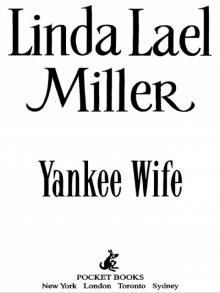 Yankee Wife
Yankee Wife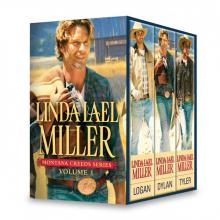 Linda Lael Miller Montana Creeds Series Volume 1: Montana Creeds: LoganMontana Creeds: DylanMontana Creeds: Tyler
Linda Lael Miller Montana Creeds Series Volume 1: Montana Creeds: LoganMontana Creeds: DylanMontana Creeds: Tyler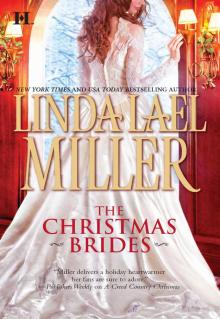 The Christmas Brides
The Christmas Brides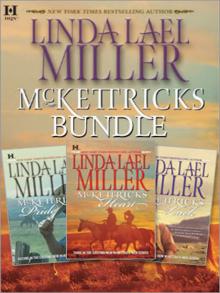 McKettricks Bundle
McKettricks Bundle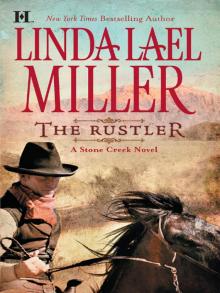 The Rustler
The Rustler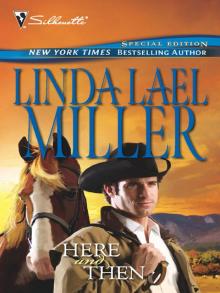 Here and Then
Here and Then Only Forever
Only Forever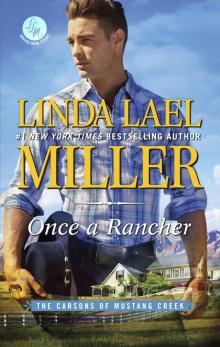 Once a Rancher
Once a Rancher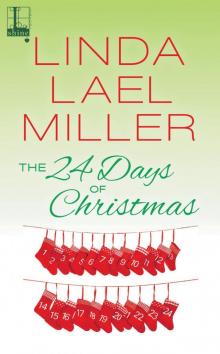 The 24 Days of Christmas
The 24 Days of Christmas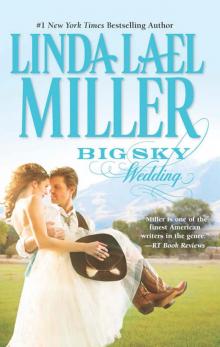 Big Sky Wedding
Big Sky Wedding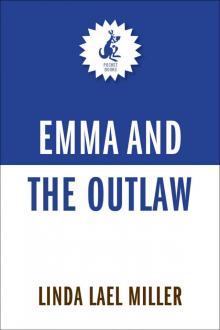 Emma and the Outlaw
Emma and the Outlaw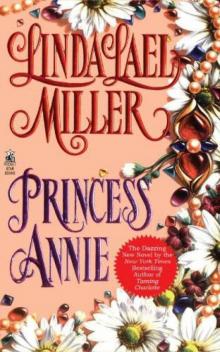 Princess Annie
Princess Annie Wild About Harry
Wild About Harry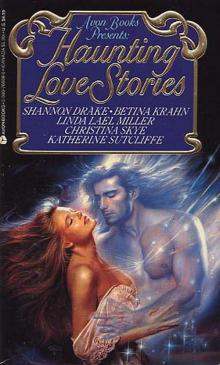 That Other Katherine
That Other Katherine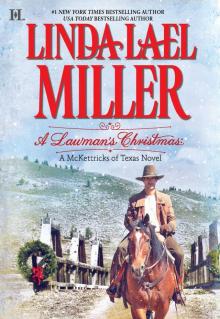 A Lawman's Christmas: A McKettricks of Texas Novel
A Lawman's Christmas: A McKettricks of Texas Novel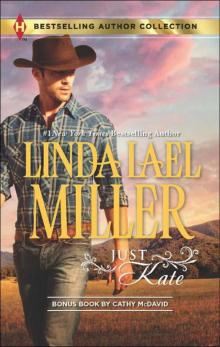 Just Kate: His Only Wife (Bestselling Author Collection)
Just Kate: His Only Wife (Bestselling Author Collection)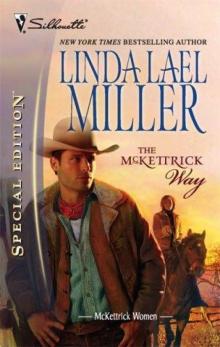 The McKettrick Way
The McKettrick Way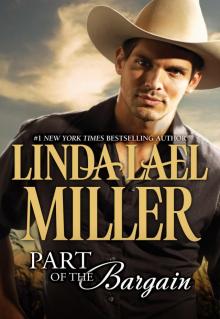 Part of the Bargain
Part of the Bargain Taming Charlotte
Taming Charlotte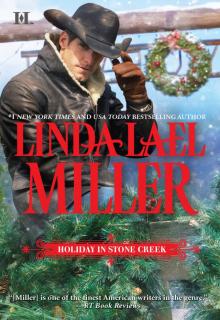 Holiday in Stone Creek
Holiday in Stone Creek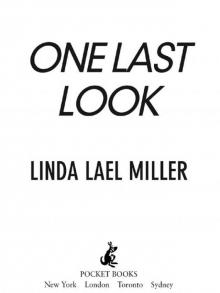 One Last Look
One Last Look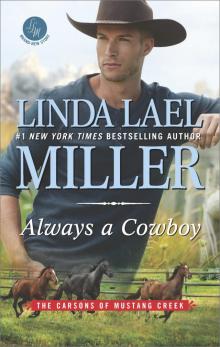 Always a Cowboy
Always a Cowboy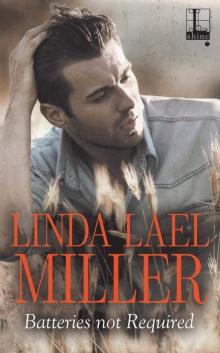 Batteries Not Required
Batteries Not Required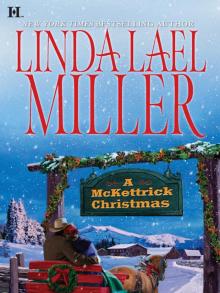 A McKettrick Christmas
A McKettrick Christmas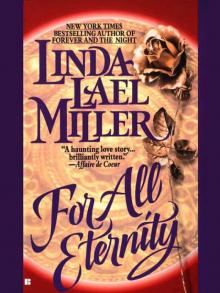 For All Eternity
For All Eternity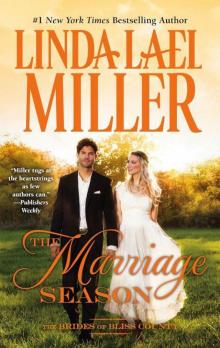 The Marriage Season
The Marriage Season Corbin's Fancy
Corbin's Fancy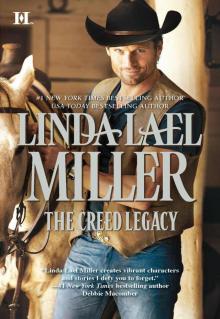 The Creed Legacy
The Creed Legacy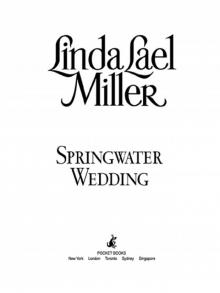 Springwater Wedding
Springwater Wedding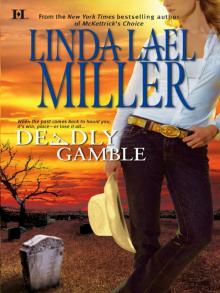 Deadly Gamble
Deadly Gamble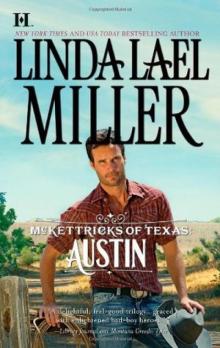 Austin
Austin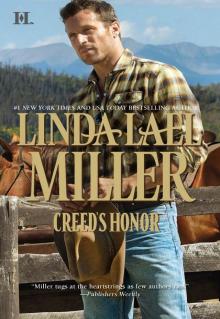 Creed's Honor
Creed's Honor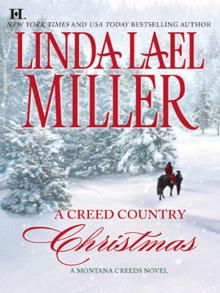 A Creed Country Christmas
A Creed Country Christmas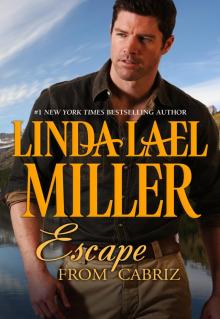 Escape from Cabriz
Escape from Cabriz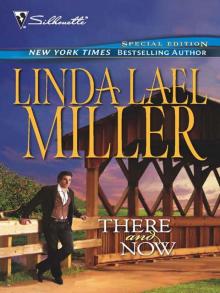 There and Now
There and Now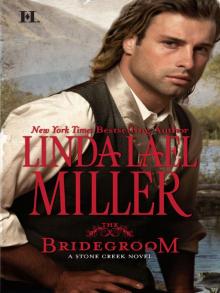 The Bridegroom
The Bridegroom State Secrets
State Secrets Bridget
Bridget